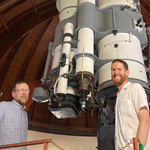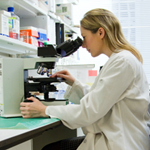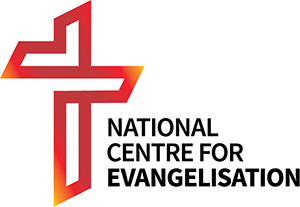The word ‘science’ may conjure up in one’s mind a variety of images – anything from a chemist analysing a sample under a microscope to a futuristic science lab using advanced technological tools. But despite the range of scientific fields, the word itself has a fairly simple origin. First appearing in the 14th century, the word ‘science’ derives from the Latin word ‘scientia’ (‘knowledge’), which comes from the Latin verb ‘scire’ (‘to know’). Over time, the word’s meaning developed, but for our purposes it is useful to refer to the definition used by St Thomas Aquinas, who defined science as “the knowledge of things from their causes”.[1]
There are many branches of science that exist, but these can broadly be categorised as either:
- Philosophical and historical sciences,
- Medical and biological sciences; or
- Natural sciences.
While science and faith are often – incorrectly – presented in secular society as an incompatible pair, history is littered with influential Catholic scientists who were leaders in their fields. For example, the Augustinian friar Fr Gregor Mendel, known as the father of modern genetics; the astrophysicist Fr Angelo Secchi SJ; inventor and mathematician Blaise Pascal; Fr James Macelwane SJ, a pioneering seismologist; and the Catholic astronomer Nicolaus Copernicus, among others. Some of these individuals have also been responsible for presenting strong arguments for the harmony of science and faith. Indeed, the Church has taught that science and faith are not opposed, but rather enhance one another. Catholic thought on this subject is captured well in the Catechism of the Catholic Church:
“Though faith is above reason, there can never be any real discrepancy between faith and reason. Since the same God who reveals mysteries and infuses faith has bestowed the light of reason on the human mind, God cannot deny himself, nor can truth ever contradict truth. Consequently, methodical research in all branches of knowledge, provided it is carried out in a truly scientific manner and does not override moral laws, can never conflict with the faith, because the things of the world and the things of faith derive from the same God. The humble and persevering investigator of the secrets of nature is being led, as it were, by the hand of God in spite of himself, for it is God, the conserver of all things, who made them what they are,” (Paragraph 159).
Thus, for people of faith, science is a way to study and understand more about the wonderful, creative works of God. Science also provides one of the strongest arguments for the existence of God, according to St Thomas Aquinas (cf. Summa Theologiae). Accordingly, science can play an important role in evangelisation, showing non-believers how the order and beauty seen throughout creation enriches faith and directs hearts and minds to something more than the mere physical world. The evangelising power of science is highlighted in the Vatican II document, Gaudium et Spes:
“When man gives himself to the various disciplines of philosophy, history and of mathematical and natural science, and when he cultivates the arts, he can do very much to elevate the human family to a more sublime understanding of truth, goodness, and beauty, and to the formation of considered opinions which have universal value,” (n. 57).
 Young Jesuit combining physics with faith
Young Jesuit combining physics with faith
For 37-year-old Matthew Pinson, joining the Jesuits was the perfect way to combine and retain his two greatest passions in life – his Catholic faith and his love of physics.
Now in his ninth year of formation for the priesthood, Matthew is part of a revival of intellectual Jesuits, following in the footsteps of Jesuit scientists such as Fr Christopher Clavius SJ and Fr Angelo Secchi SJ.
 The complementarity of science and faith
The complementarity of science and faith
Science and faith are a harmonious pair that operate in unison on a shared path to truth, enriching and supporting each other, according to Catholic teaching expressed by Pope Francis and in the Catechism of the Catholic Church.
Links
Faith and Science: Friends or Foes? (Diocese of Darwin)
Science follows where faith leads (The Catholic Weekly, 2024)
Every time we look at the stars, we can marvel and give thanks to God, Terry Lees writes (The Catholic Leader, 2024)
Science, faith and what it means to be human (Archdiocese of Melbourne, 2022)
Sublimitas et Miseria Hominis (The Grandeur and Misery of Man) – Apostolic Letter of Pope Francis on the 4th Centenary of the birth of Blaise Pascal (2023)
Evangelising Through Evolution (Catholic Answers)
Wonder: The Harmony of Faith and Science (Word on Fire Video Series)
The Evidence for God from Science (Word on Fire Show Podcast)
Christianity and Science in Conversation (ISCAST)



